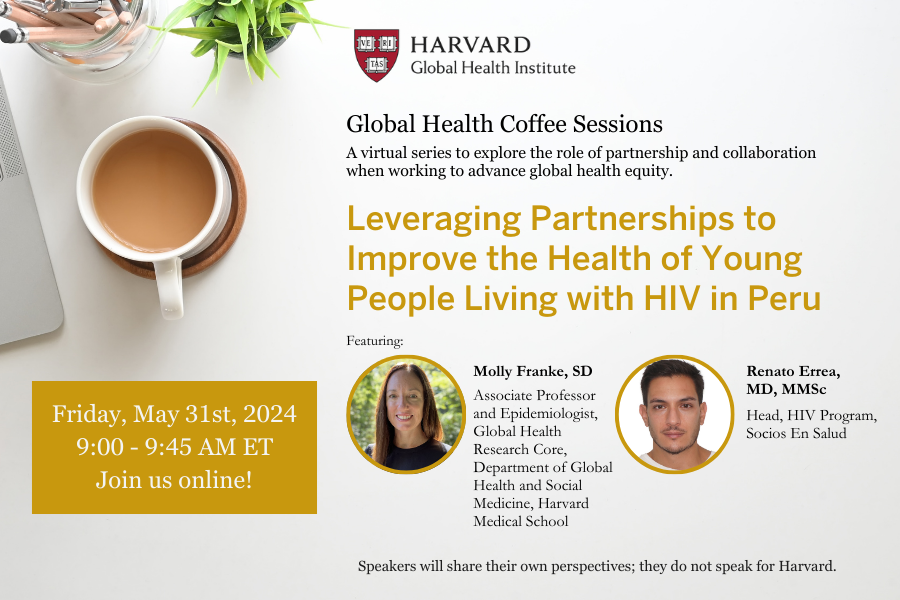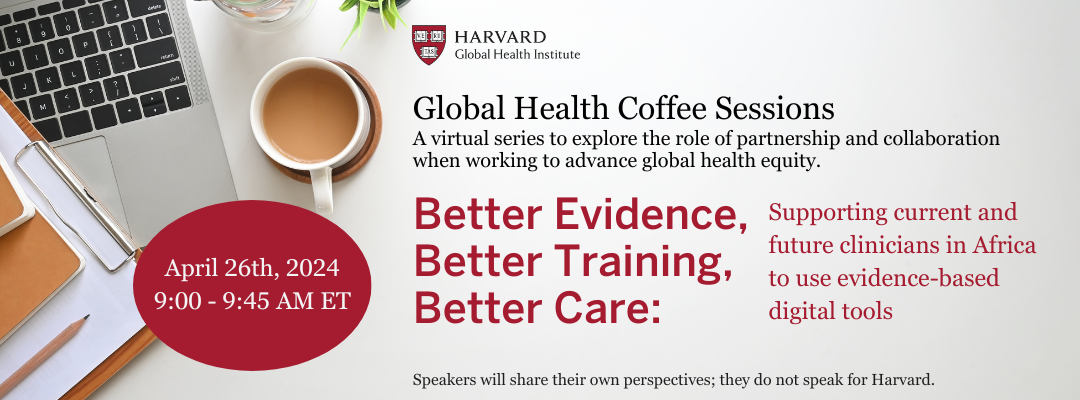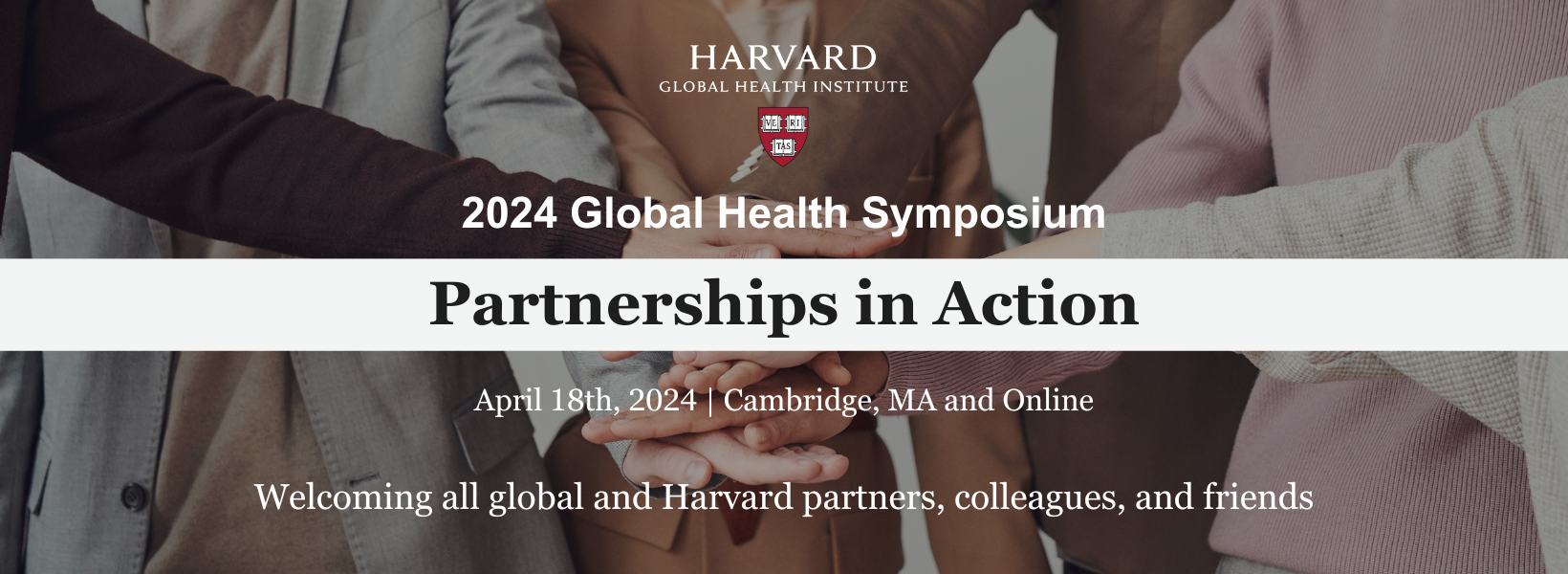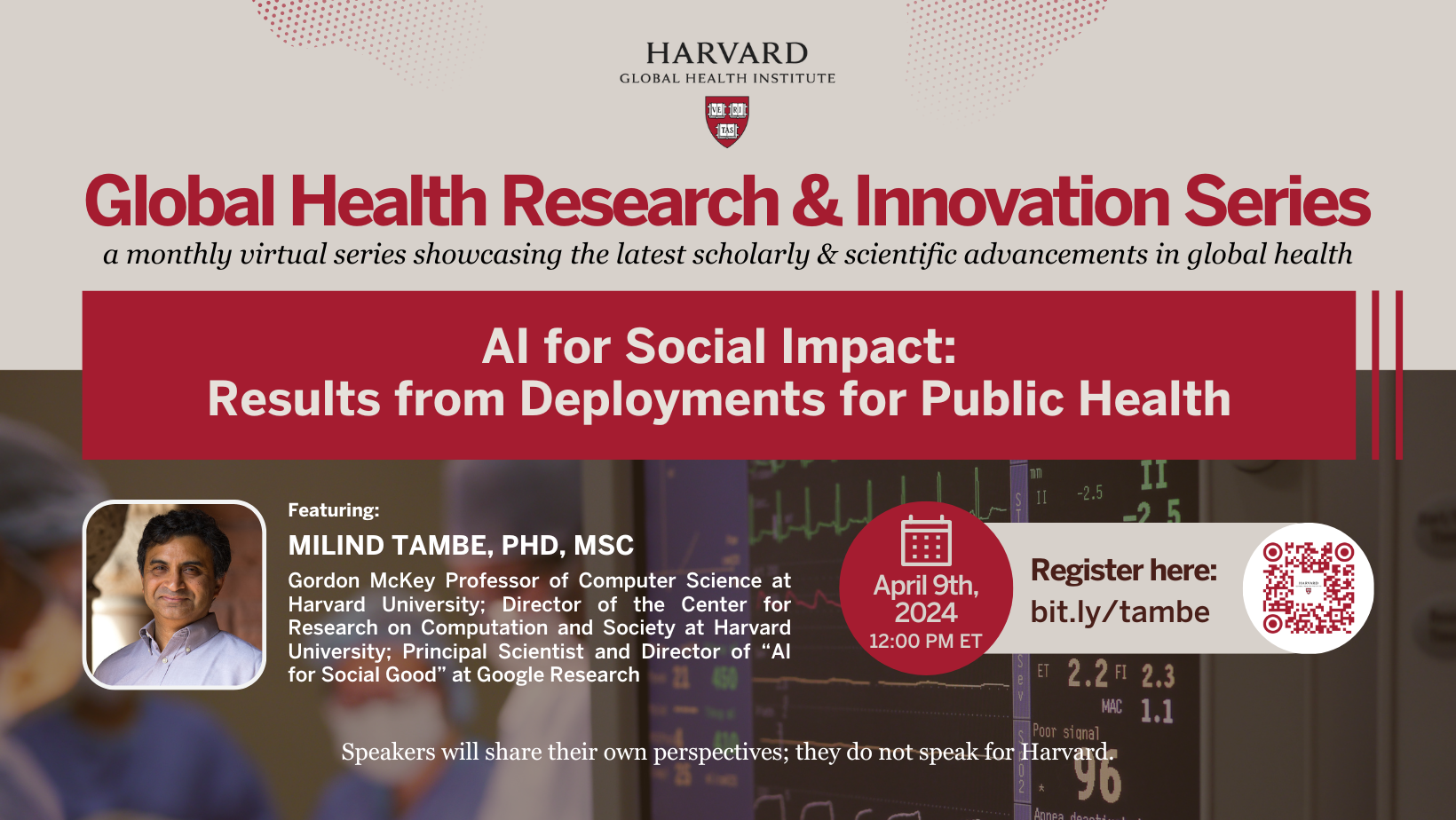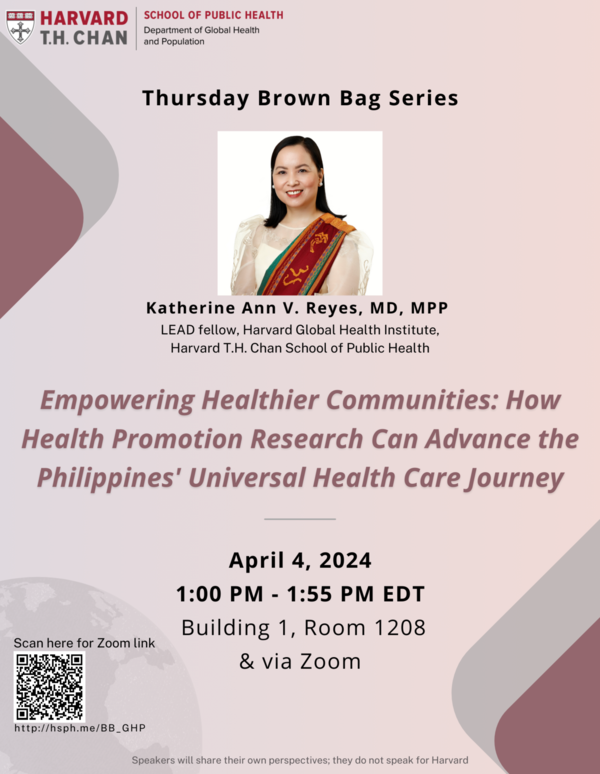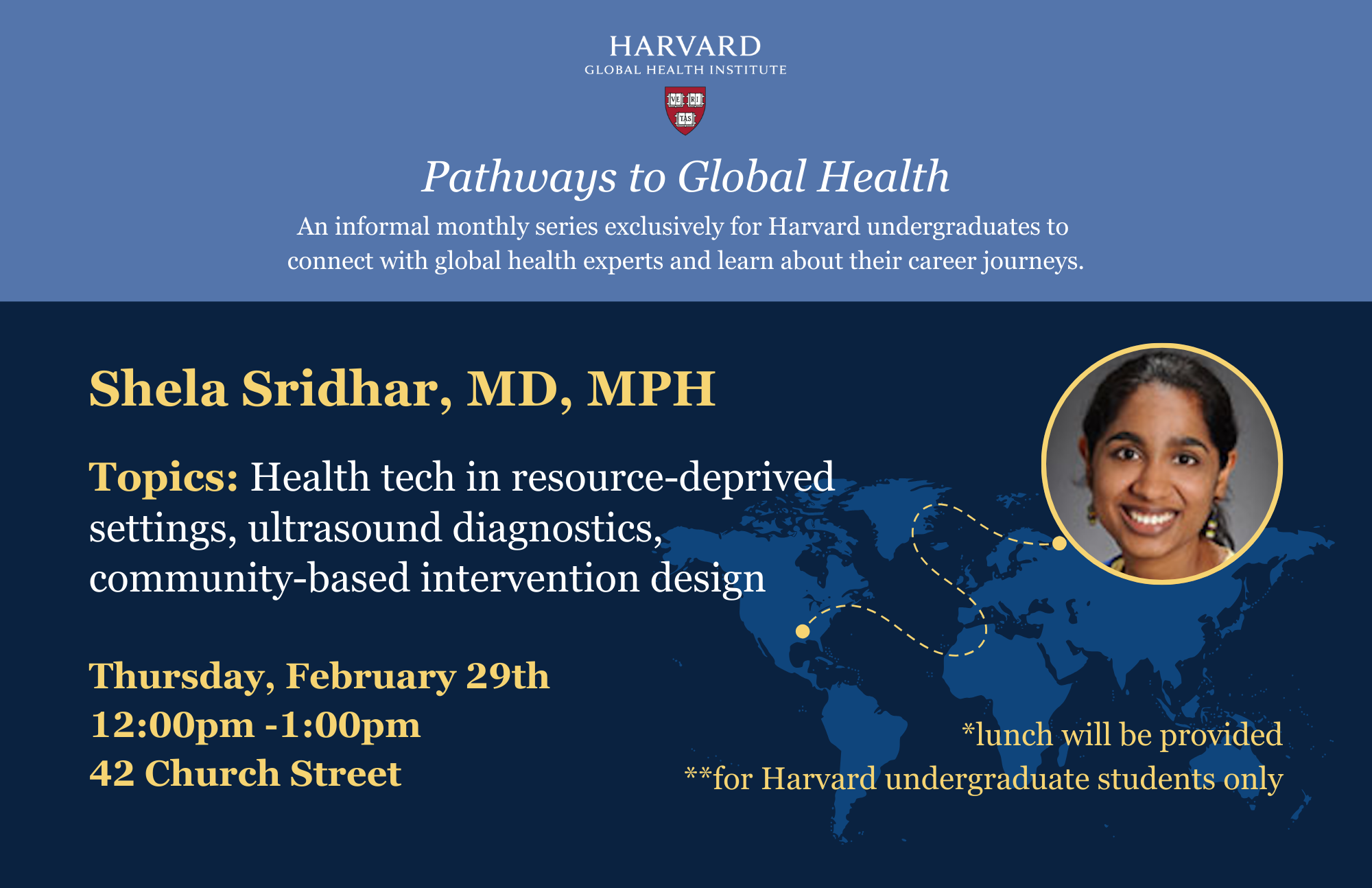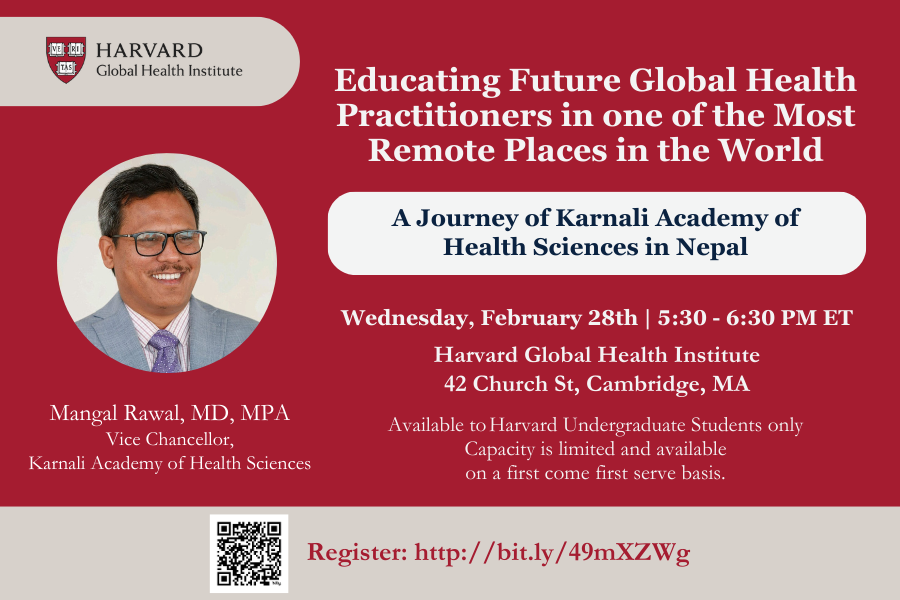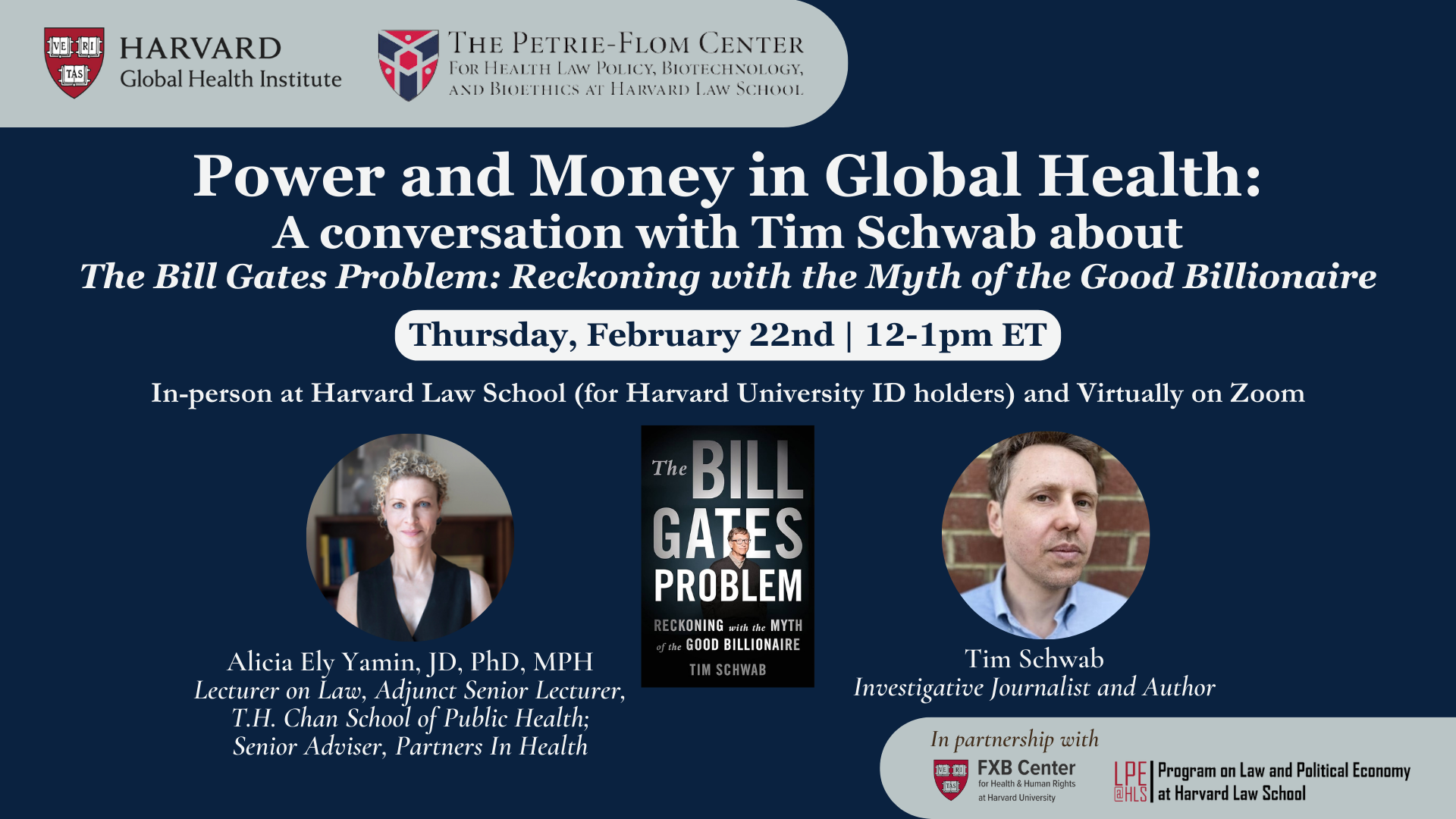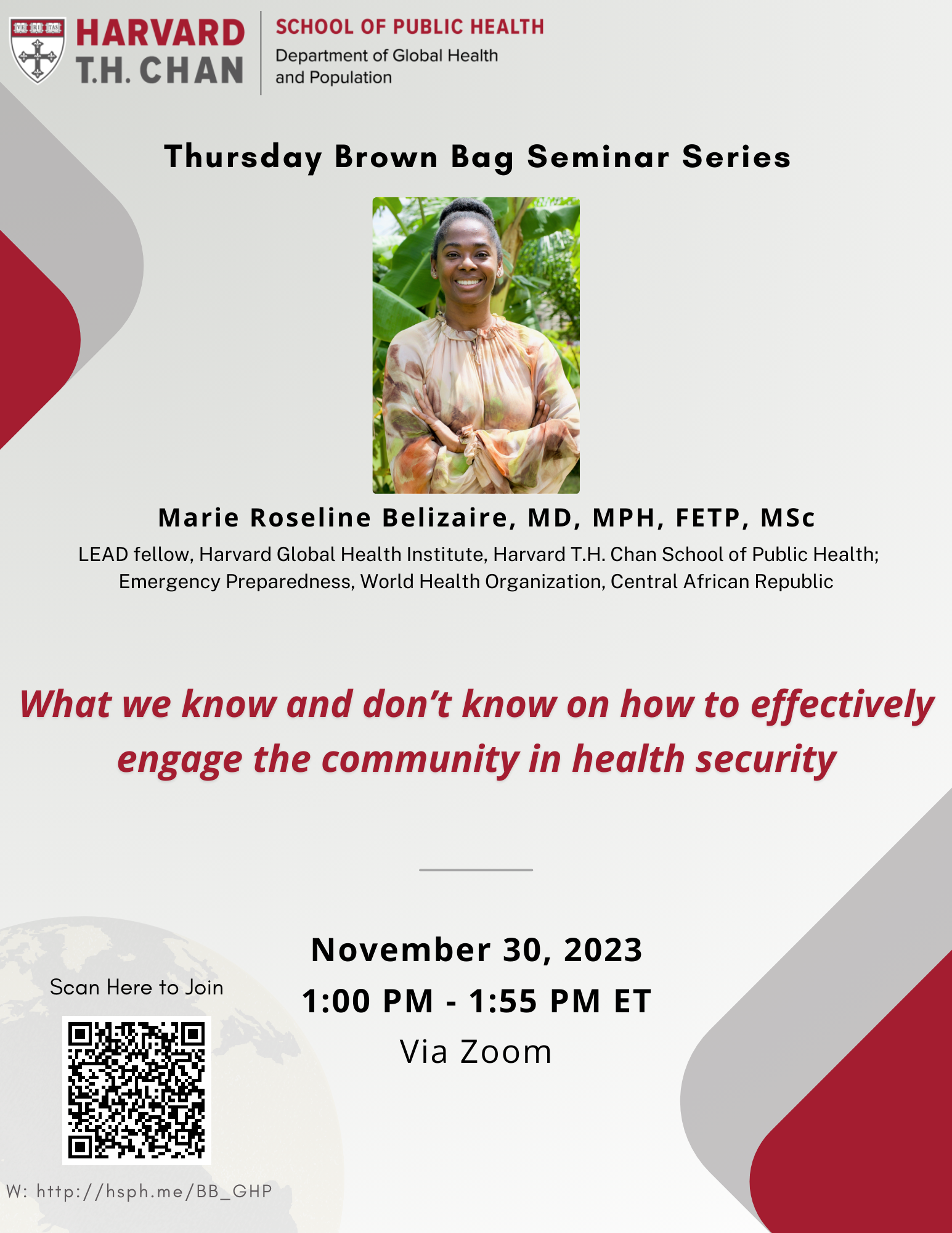In this interactive, hybrid event, Alicia Ely Yamin, JD, MPH, PhD, will moderate a conversation with investigative journalist and author Tim Schwab about his latest book, The Bill Gates Problem: Reckoning with the Myth of the Good Billionaire. Audiences, both in-person and online, will have the opportunity to join in the discussion. This event is part of HGHI’s Scholarly Working Group Initiative. It is being co-hosted by the Harvard Global Health Institute (HGHI) and the Petrie-Flom Center for Health Law Policy, Biotechnology, and Bioethics at Harvard Law School, and in partnership with the François-Xavier Bagnoud (FXB) Center for Health and Human Rights and the Program on Law and Political Economy at Harvard Law School.
To join the event virtually, please click here to register
In earlier eras, the super-wealthy—Carnegie, Rockefeller, Frick and the like—were denominated as “robber barons”. They were pilloried by the popular news media and investigated in some situations. But that is not the case with Bill Gates, who has been lauded for his philanthropy in global health. Based on investigative journalist, Tim Schwab’s, exhaustively researched new book, this event will take a closer look at Bill Gates’ approach to global health, and what has come to be called “philanthrocapitalism.” The rise of philanthrocapitalism is tied to a shift in thinking about development and the role of the state in global health governance. Bill Gates and the Gates Foundation are worthy of particular focus because their investments dwarf those of other private foundations. The Gates Foundation’s investments in global health rival those of top donor countries; Gates himself played an outsized role in influencing the selection of the COVAX facility for COVID-19 vaccines as opposed to the COVID-19-Technology Access Pool (C-TAP) housed under the World Health Organization. The Gates Foundation, on the one hand, sets agendas for global health, and on the other is not subject to accountability for the actions implemented, the means and metrics used, nor the priorities set. Many academic researchers at top teaching and research institutions, including Harvard University, rely on Gates money for their research priorities; Gates funding and the paradigm of metrics they espouse have also had deep impacts on the curricula in global public health, and in turn on the sorts of candidates sought and the skills they will have upon graduation. As governments increasingly are unable or unwilling to invest in health as a global public good, private philanthropies such as Gates can create institutions, set agendas, and shape development in ways that were inconceivable only a matter of decades ago.
About Tim Schwab
Tim Schwab is an investigative journalist based in Washington, DC. His groundbreaking reporting on the Gates Foundation for The Nation, Columbia Journalism Review, and The British Medical Journal has been honored with an Izzy Award and a Deadline Club Award. The Bill Gates Problem is his first book. The New York Times recently highlighted his forthcoming book (Henry Holt Books), The Bill Gates Problem, as one to look out for in November; Booklist (American Library Association) gave it a starred review; and Kirkus called it an “An eye-opening look at the use of tax-subsidized money by private philanthropy.” The book builds on an investigative series I published in 2020 and 2021, which was funded through an Alicia Patterson reporting fellowship. This series won an Izzy Prize (from Ithaca College) and a Deadline Club Award (from the Society of Professional Journalists), and was a finalist for a Mirror Award (from Syracuse University). The Nation nominated his series on Gates for a Pulitzer. His reporting on Gates has appeared in The Nation, Columbia Journalism Review, and the British Medical Journal, and represents some of the only investigative journalism ever published on Gates. You can read more about Tim Schwab on his website.
About Alicia Ely Yamin, JD, MPH, PhD
Alicia Ely Yamin, JD, MPH, PhD, is a Lecturer on Law and the Senior Fellow on Global Health and Rights at the Petrie-Flom Center for Health Law Policy, Biotechnology and Bioethics at Harvard Law School; Adjunct Senior Lecturer on Health Policy and Management at the Harvard TH Chan School of Public Health; and Senior Advisor on Human Rights and Health Policy at the global health justice organization, Partners In Health. Known globally for her trans-disciplinary work in relation to economic and social rights, sexual and reproductive health and rights, the right to health, and the intersections between development paradigms and human rights, Yamin’s career has bridged academia and activism. She has lived in Latin America and East Africa for much of her professional life and worked with local advocacy organizations, including co-founding a program on health and human rights in the Asociación Pro Derechos Humanos (Lima, Peru; 1999). Yamin was appointed by the UN Secretary General as one of ten international experts to the Independent Accountability Panel for Women’s, Children’s and Adolescents’ Health in the Sustainable Development Goals (2016-2021). She was the chief consultant to the Office of the High Commissioner for Human Rights and drafter of the ‘Technical guidance on the application of a human-rights based approach to the implementation of policies and programmes to reduce preventable maternal morbidity and mortality’, the first guidance on a ‘human rights-based approach to health’ to be adopted by the UN Human Rights Council. Yamin holds Juris Doctor and Master’s in Public Health degrees from Harvard University, and a Doctorate in Law from the University of Buenos Aires in Argentina. She has published multiple books and over 160 articles in law and policy journals, as well as peer-reviewed public health journals, in both English and Spanish. A revised and substantially expanded edition of her latest monograph, When Misfortune becomes Injustice: Evolving Human Rights Struggles for Health and Social Equality, is out from Stanford University Press in 2023. You can read more about Alicia Ely Yamin on her faculty page.
About the Harvard Global Health Institute
The Harvard Global Health Institute is an interfaculty initiative that facilitates collaboration across the Harvard community and partners worldwide to advance global health equity. We tackle the greatest health challenges of our time through innovative transdisciplinary research, education, and partnerships that build knowledge and drive positive change in global health. Our work is grounded in the fact that researchers, scholars, care deliverers, and communities must inform each others’ work to transform global health at every level.
About the Petrie-Flom Center for Health Law Policy, Biotechnology, and Bioethics
The Petrie-Flom Center for Health Law Policy, Biotechnology, and Bioethics at Harvard Law School was founded in 2005 through a generous gift from Joseph H. Flom and the Carroll and Milton Petrie Foundation. The Center’s founding mission was to promote interdisciplinary analysis and legal scholarship in these fields. Today, the Center has grown into a leading research program dedicated to the unbiased legal and ethical analysis of pressing questions facing health policymakers, medical professionals, patients, families, and others who influence and are influenced by health care and the health care system.
About the HGHI Scholarly Working Group
The Harvard Global Health Institute’s Scholarly Working Groups are designed to encourage a collaborative environment, promote inter-faculty gatherings, and explore and accelerate research areas in topics critical to the advancement of “Health for All”. Each Scholarly Working Group includes faculty from at least two schools across Harvard University. Through these working groups, we aim to catalyze ideas, inspire the writing of grants, policy briefs, or working papers, or build networks to advance a program of work. Through our events and programs, the Harvard Global Health Institute provides a platform for different perspectives and debates within the field of global health through a variety of media. The views expressed in these events and programs are solely those of the speakers, authors, researchers, and participating audience, and do not imply endorsement by the Harvard Global Health Institute.



